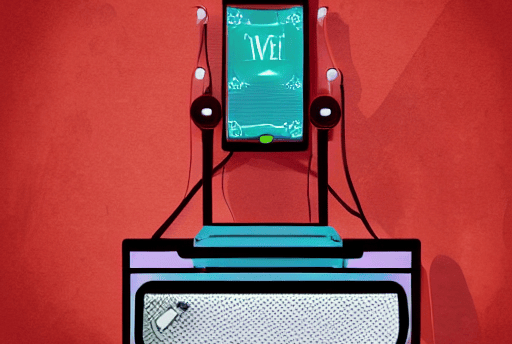Openvoice: A New Era of Voice Cloning for AI Developers
The Future Calls
1/2/20242 min read


Introduction
Voice cloning technology has come a long way, with applications ranging from entertainment to accessibility. However, the quest for improved audio quality, voice cloning similarity, speech naturalness, and computational efficiency remains a top priority for AI developers. Enter OpenVoice, an open-source solution that promises to revolutionize the voice cloning landscape.
OpenVoice: A Collaborative Effort by MIT, Tsinghua University, and MyShell
The development team behind OpenVoice comprises experts from MIT, Tsinghua University, and MyShell.ai. This collaboration has led to a unique approach to voice cloning that offers granular control over tone, emotion, and accent, as well as zero-shot cross-lingual voice cloning.
How OpenVoice Works
OpenVoice utilizes two AI models: a text-to-speech (TTS) model and a tone converter model. The TTS model controls style parameters and languages, while the tone converter model is trained on over 300,000 audio samples from 20,000+ speakers. By combining the base speaker and the user's recorded audio, OpenVoice can reproduce the voice and change the tone color. Moreover, its computational efficiency surpasses that of commercially available APIs.
OpenVoice in Action: Demonstration and Comparison
A demonstration of OpenVoice on the HuggingFace platform showcases its ability to adjust style and tone using a simple dropdown menu. When compared to other voice cloning methods, such as Meta's Voicebox, OpenVoice excels in audio quality, voice cloning similarity, speech naturalness, and computational efficiency.
MyShell: The Company Behind OpenVoice
Founded in 2023, MyShell.ai has already garnered a user base of over 400,000 and boasts a thriving Discord community of 61,000+ members. The platform offers various AI-native apps, including text-based AI characters, bots, an animated GIF maker, and user-generated text-based RPGs.
Monetization Strategy
MyShell's monetization strategy for OpenVoice includes charging a monthly subscription for web app usage, fees for third-party bot creators to promote products within the app, and charges for AI training data.
OpenVoice's Potential Impact on the Voice Cloning Industry
OpenVoice's potential applications in industries such as entertainment, translation, and accessibility are vast. For instance, it can translate videos into other languages, making content more accessible to wider audiences. Additionally, it can preserve voices for future generations, ensuring that cherished voices remain alive for years to come.
Conclusion
OpenVoice represents a significant advancement in voice cloning technology for AI developers. Its flexible voice style control, zero-shot cross-lingual voice cloning, computational efficiency, and improved audio quality make it a promising tool for the industry. AI developers are encouraged to explore and contribute to the open-source project, potentially shaping the future of voice cloning technology.
In summary, OpenVoice is a versatile and computationally efficient voice cloning approach that enables granular control over voice styles and achieves zero-shot cross-lingual voice cloning. Developed by a team of researchers from MIT, MyShell.ai, and Tsinghua University, OpenVoice offers better audio quality, voice cloning similarity, speech naturalness, and computational efficiency compared to other methods. The source code and trained model for OpenVoice are publicly accessible, fostering further research in the field. With potential applications in various industries, OpenVoice is poised to make a significant impact on the voice cloning landscape.
Edited and written by David J Ritchie
